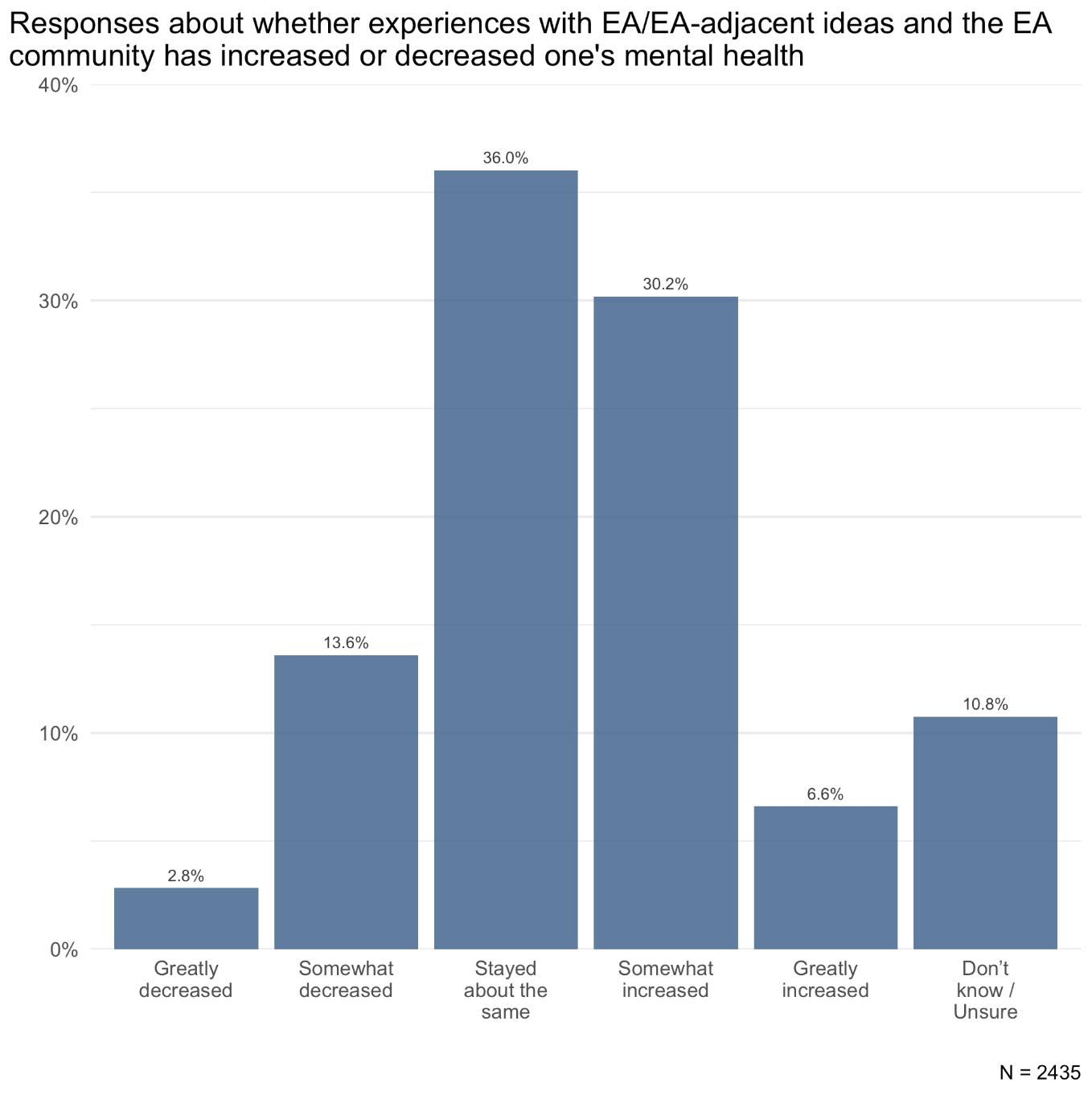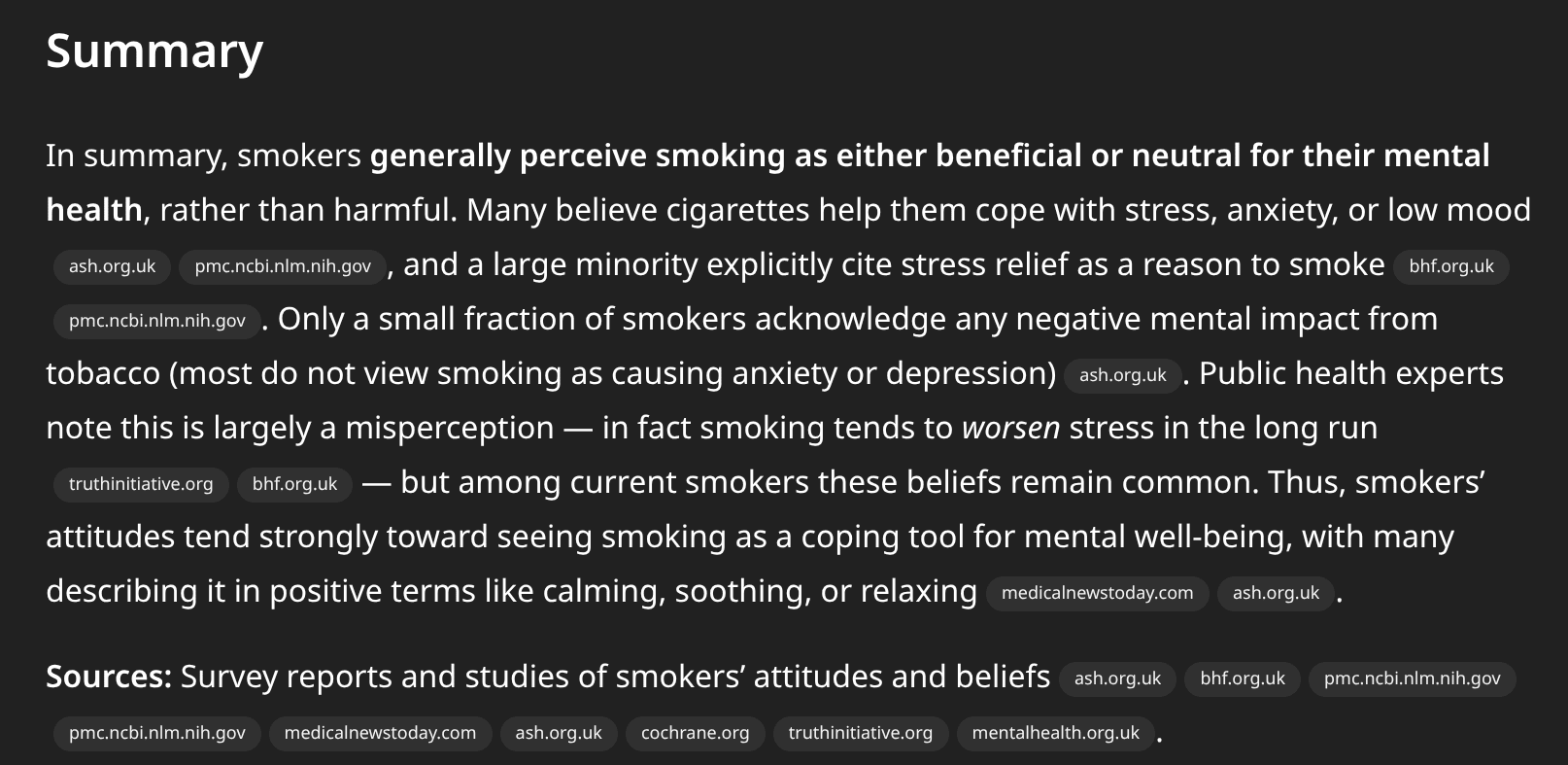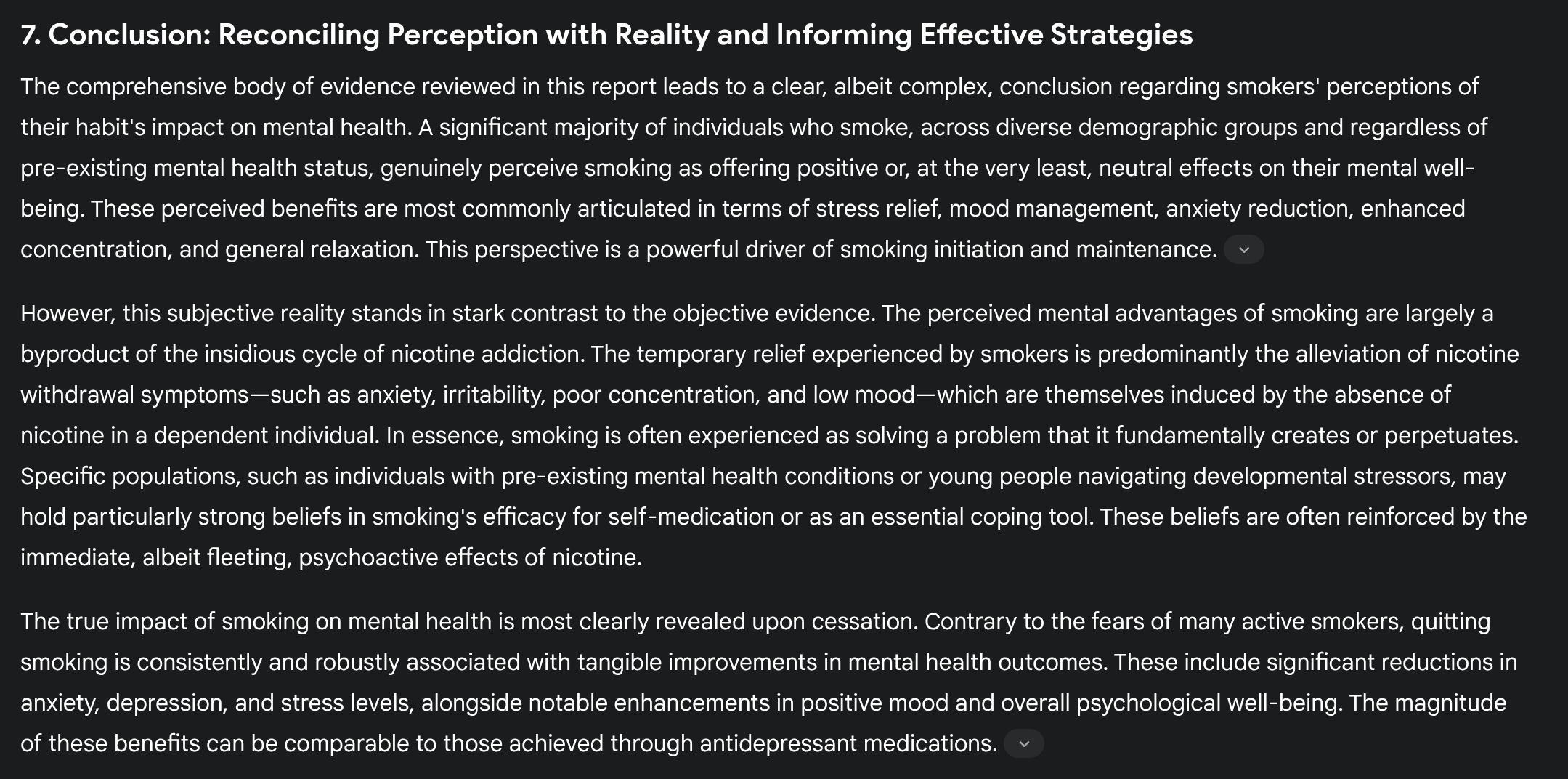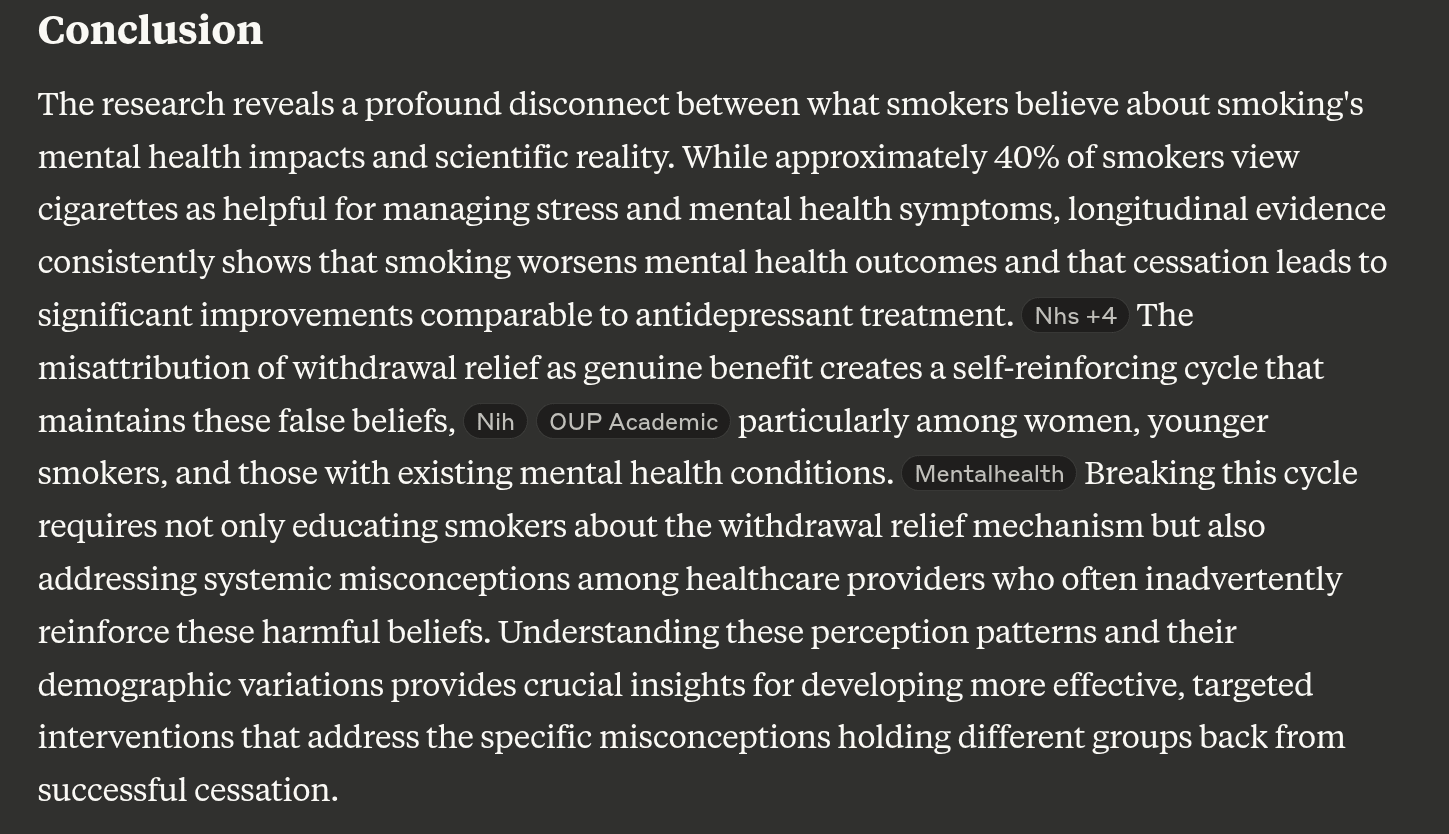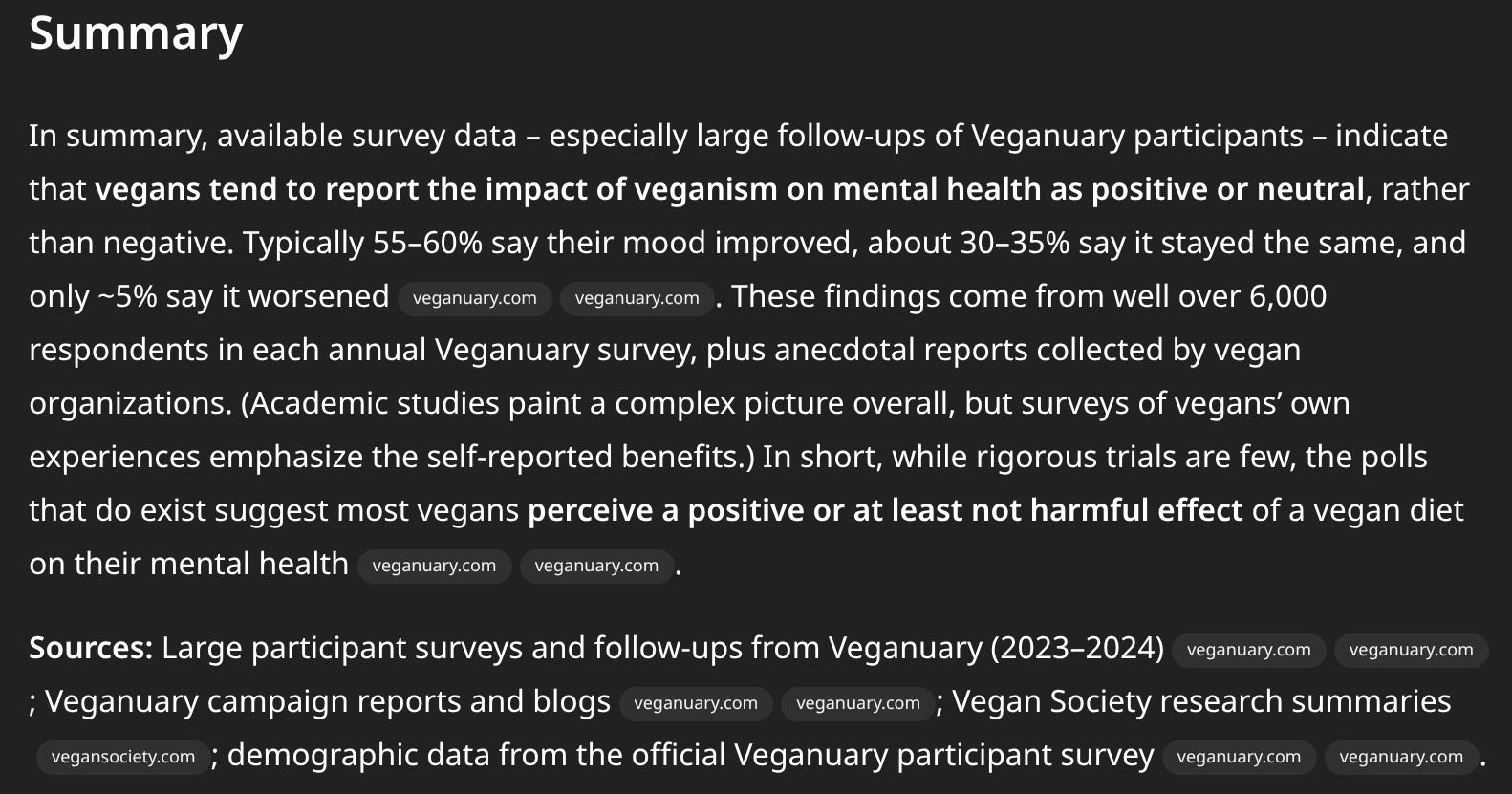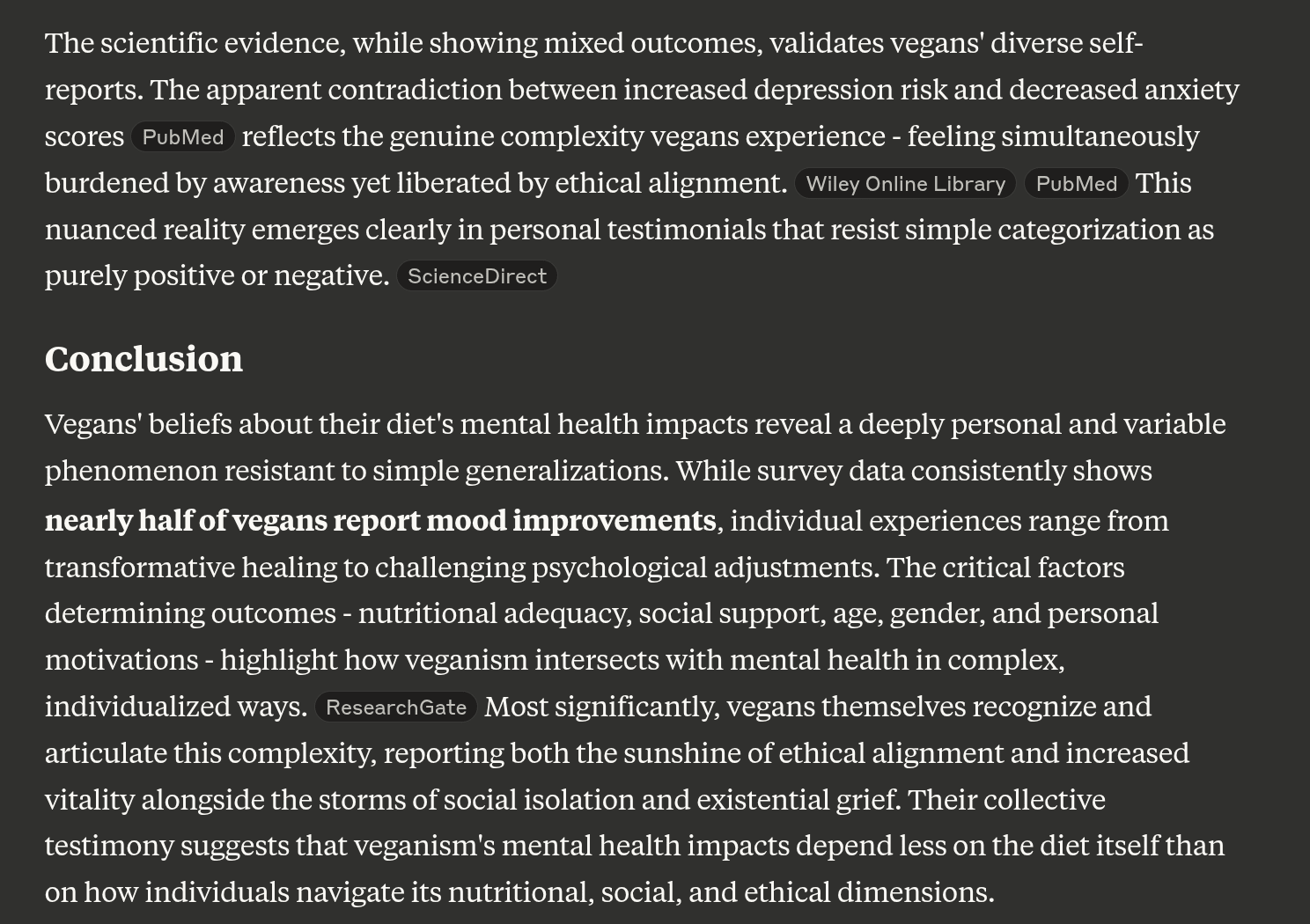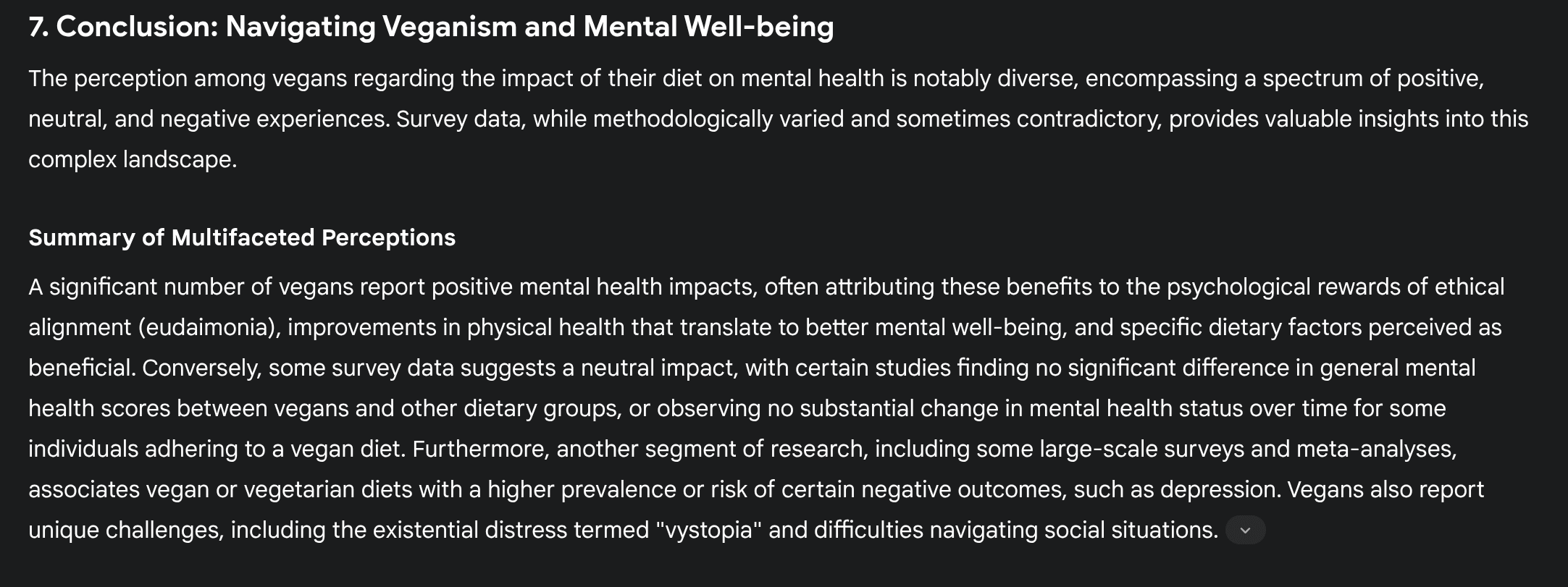Positive effects of EA on mental health
By Julia_Wise🔸, Catherine Low🔸, Charlotte Darnell @ 2025-05-29T17:46 (+135)
Mental illness (including struggles that don’t meet a specific diagnosis) is a serious public health burden that affects a large proportion of people. This is true within EA as well as in the general population. In EA, as in any community, it’s important for us to try to support those who are struggling.
We sometimes see the theory that EA causes unusually bad mental health, but the evidence lightly points toward EA being good or neutral for the wellbeing of most people who engage with it.
Most respondents say EA is neutral or good for their mental health
There have been surveys done specifically about mental health and EA (2019, 2021, 2023), but these didn’t aim to be representative of the EA population. The largest and most representative source is the EA Survey 2022, where most respondents indicated neutral or positive effects of their EA involvement on their mental health.
There’s a selection bias: respondents stayed in EA long enough to take the EA Survey. We expect that people who leave EA because of bad experiences are under-represented here.
Catherine asked David Moss from Rethink Priorities to look for patterns across groups in the 2022 survey, and he did some quick analyses, but nothing particularly significant stood out. David’s summary:
- There were no significant differences for gender, race, levels of engagement in EA, and whether the respondent was focussed on neartermist or longtermist causes.
- Respondents currently residing in ‘Rest of the World’ reported larger increases than UK/USA/Europe.
- The increase in mental health was higher for people newer to EA, younger respondents, and students, but the differences were fairly small.
The 2019 EA/mental health survey also found “more involvement in EA is positively, but not significantly, correlated with better mental health.”
It’s possible things have changed since these surveys, perhaps with the rise of concern about existential risk or stress around the FTX situation.
While the overall pattern here is positive, some portion of people report EA worsening their mental health. We’ve talked to community members who’ve had a really tough time in the community, where being part of EA wasn’t good for them personally. (And we’ve experienced that at times too.) That’s painful, and part of our work is to try to reduce those problems.
Why might EA be good for wellbeing?
Community engagement and a sense of purpose are typically good for mental health.
A 2021 interview of ~20 EA group organizers found “The major reasons why people continue to get value from EA are: social (friends/community), career benefits, wanting to be impactful, having responsibilities or recognition for their work, learning important or interesting things.”
Some guesses from Catherine, comparing to her past experiences in academia, teaching, and climate activism:
- Having a base of shared values makes it easier to have meaningful connections with other people.
- For people who feel pulled by all the important problems out there, cause prioritisation can be freeing by giving you permission to not work on some things. It can help you focus on what matters and not “sweat the small stuff.” For example, someone concerned about climate change might worry less about personal emissions after encountering EA.
- Shared goals mean that others in the community often want to help you succeed – your success is their success.
- The EA community and organisations are far more open to conversations about mental health struggles than any other space I’ve been a part of.
- EA can be very welcoming and accommodating about things that aren’t always accommodated elsewhere, for example being LGBTQ+, dietary requirements, or sensory issues.
- Many community members, particularly group and event organisers, consciously work on making their space positive and welcoming. For example, I’ve had many male organisers proactively asking our team how they can make their EA group a welcoming space for women.
Why might it be bad?
More has been written about why this might be. A few examples:
- Impact obsession: feeling like you never do enough good
- Don’t be bycatch
- Aiming for the minimum of self-care is dangerous
Some guesses:
- Working on high-stakes projects can be a heavy psychological burden.
- EA values hard work and achievements; it’s easy to feel you’re not good enough.
- Exposure to moral philosophy can lead you to see ethical issues everywhere, turning everyday decisions into moral dilemmas.
- Thinking about current and future global tragedies can be emotionally overwhelming.
Correlation and causation
As far as we know, no one has compared rates of various problems among EAs with rates in similar populations (by age, gender, nation, education level, etc.) We just don’t know how mental health in EA compares to some baseline where the same people didn’t get involved in EA.
Conscientious people who are prone to thinking deeply about the world’s problems might have done that in other spaces even if they didn’t find EA. We might be feeling doom-y about climate change and/or refugee crises.
Other fields also affect wellbeing
Most fields can tell a story about why they’re bad for mental health. Articles tend to focus on white-collar areas, but construction and mining carry the highest risk of suicide. Burnout is regarded as a widespread problem in helping professions including healthcare, teaching, and social work. More examples: dentists, climate activists, yoga instructors, librarians, restaurant workers, academics. (Julia is personally excited about never working in a restaurant again.)
There are real reasons to attend to wellbeing in any field. EA isn’t unusual in having risks as well as benefits for wellbeing.
EA isn't one-size-fits-all
Everyone experiences EA in a different way due to different backgrounds, different subcultures of the community they interact with, and their different approaches to the principles.
While it's encouraging that EA appears positive for many people's mental health, consider how it affects you. If you're struggling — even if others around you seem to be thriving — you're allowed to ask for support, take a step back, change roles, or make whatever changes feel right. Many people navigate mental health challenges while staying engaged with EA. But you don't have to if that's not working for you.
Even if things are going well, it's worth being proactive about your mental health — building support structures, maintaining boundaries, and checking in with yourself regularly about what you need.
We believe your wellbeing has intrinsic value: we’re all sentient beings who matter. On top of that, if mental health is poor in a community, we’re unlikely to have the positive impact we want.
Resources
- Mental Health Navigator
- 80,000 Hours resources on mental health and careers
- Navigating mental health challenges in global catastrophic risk fields
- Aiming for the minimum of self-care is dangerous
- Burnout: what it is and how to treat it
- It’s ok to leave EA
- Resources on mental health and finding a therapist
More under the tag for self-care and wellbeing in the EA community.
Thanks to the researchers who collected and analyzed the data!
More about us: CEA’s community health team
Austin @ 2025-05-29T21:50 (+19)
I believe this! Anecdotally:
- I suspect that in the 3 years I've been in the community, I've been day-to-day happier and find more meaning in work; in contrast to eg the same period of time when I joined Google just out of school
- My sense is a lot of my peers from high school or college don't get the same kind of support that EA provides around community, friends, dating, and mission-orientation
Jamie_Harris @ 2025-05-30T07:23 (+11)
Good news if true! Thanks for sharing.
Some other guesses/hypotheses of things that may contribute to positive mental health:
- "For people who feel pulled by all the important problems out there", EA's focus on tractability, cost-effectiveness, and actually doing things that make a difference, may mean that for some people it's a much more hopeful, optimistic, solutions-oriented take than what they're used to. I remember speaking to a Leaf alum (i.e. a teenager) who found Leaf inspiring/motivating in contrast to the climate change doom and gloom that they were usually surrounded by.
- There are a bunch of mental health and wellbeing services out there specifically for EAs. Maybe this is just another opportunity to engage with that sort of support that someone might otherwise have skipped or never had access to. (Although my sense is that these services have developed/spread/grown since the 2022 survey.)
- More generally, plausible mental health / wellbeing discussion and consideration may be more part of the environment, culture, and social norms than they have had in other contexts. A different topic, but I had a similar thing for productivity when I first became more involved with EA -- I was around 21 and had graduated from a top university, but still I'd never really encountered people discussing ways to become more productive and efficient generally. I can imagine a similar thing happening for mental health. (I can also imagine people encounter 'wellness' programs in e.g. corporate environments where they are based on vibes rather than evidence, or otherwise clearly seem to be shallow, hollow, or ineffective, and then the more evidence-based approach within EA makes it resonate more. I think something a little bit like this did happen to me.)
- This is hinted at with "wanting to be impactful", but all the standard stuff in the 80k career guide about fulfilling careers etc.
(Here I'm just assuming the premise is true. I do feel a bit sceptical due to the survey response bias thing. But I don't have counterevidence beyond anecdotes and intuition.)
Jeffrey Kursonis @ 2025-05-30T00:14 (+7)
In a sense this would be like polling a random cross section of world humanity...most of them are mentally healthy. Currently 1 Billion people have a common mental disorder (CMD), like anxiety, depression, PTSD, as opposed to the Serious one's like Psychosis, Schizophrenia, etc. That makes it 1 of 8 humans, and puts depression as the no. 1 global health disability (all health). So if 1 out of 8 EA'ers responds to the culture with "impact obsession" -- guilt at eating an ice cream cone instead of grinding at their desk kind of thing then that is in line and is a serious thing...EA should work on those issues, make that a less common response to our culture and care for those ill affected, and I applaud Julia and all who do. And just as 1 of 8 EA'ers being depressed isn't helping the effectiveness of our altruistic goals, so the same problem exists in the whole world toward every good goal of humanity. We need to work on those issues.
So EA should not only be concerned about EA meta health, it should be concerned about the world's mental health. Both.
I agree that for most being in EA is better for mental health, I find it invigorating to be around a bunch of people interested in doing good for their fellow humans. But depending on various factors, like people self selecting to be in EA because they already feel guilty they're not doing enough, or a tendency to judge themselves and feel guilt, we still have to be promoting mentally healthy ways of being together on our particular mission.
Here's a little suggestion for EA mental health, reflecting the Harvard study of adult development, an 85 year longitudinal study that said when all is said and done, it's having good relationships that accounted for people having better mental health; Rather than efficiently downing a Huel so you can stay at your desk and keep grinding, lean toward getting together with co-workers or friends for lunch, spend time talking and enjoying each other. Get your mind off work. Try twice a month to do something creative for lunch in the office, like get a bunch of groceries delivered, and have everyone cook a meal together, serve cool drinks to those standing around if there's not enough room in the kitchen for everyone, puts cutting boards out and get those STEM's choppin' broccoli. (like the famous Dana Carvey SNL skit). Spend time together—no talking about work allowed. Anyone who accidentally brings up a work issue, gets some funny punishment...like choppin' more broccoli.
We are not robots optimizing, we are humans living in relationships, and ice cream always earns more than it takes. Consider more art too. It's basically human relationship in a different medium, proven over and over to improve mental health, and makes people visiting your office (and home) think you are cool. Robots don't need ice cream or art, if you also don't...hmmm...maybe some of you are already transitioning...or you're optimizing on robot criteria rather than human.
gkcv @ 2025-06-03T22:51 (+5)
I would be curious to see this broken down by preexisting mental health status. I don't expect EA to have much negative mental health impact on people who already have ~normal mental health, but given the widespread normalization of e.g. scrupulosity, AI doomerism on the community level, i suspect that people coming into EA with preexisting mental health concerns might see them get worse, or face slower recovery.
Catherine Low🔸 @ 2025-06-04T09:25 (+2)
This sounds plausible. Unfortunately I don't think we or Rethink Priorities have this data to do this breakdown at the moment.
hbesceli @ 2025-06-02T21:23 (+5)
Thanks for writing this! I'm curious about how important you think the selection effects are here? eg. in terms of people who have had worse experiences with EA being less likely to fill out the survey.
I think my initial guess here would be that EA is roughly net neutral for people in terms of mental health, and because I expect the selection effects in who takes the survey to be fairly strong, I don't really update much on seeing the above data
Larks @ 2025-06-04T15:01 (+10)
Seems plausible to me that people who are interested in the topic of mental health have worse mental health than the average person.
Julia_Wise🔸 @ 2025-06-05T11:21 (+5)
>my initial guess here would be that EA is roughly net neutral
Yes, I think the null hypothesis is a good starting point. Sometimes I see people starting from the guess that EA has a bad effect, and that's not what the evidence suggests.
Catherine Low🔸 @ 2025-06-04T09:31 (+2)
I'm really not sure.
I do think it is likely that many people get exposed to EA and realise it isn't a great space for them personally, and choose not to engage as a result. These people won't have filled in the EA Sometimes those people might not be a good fit for EA anyway -- they have different priorities or values in their lives. But I expect some would have been very value aligned and gotten a lot out of being involved, so that is the group I'm worried about.
The Rethink Priorities data makes me (tentatively) a little less worried that a large number of people spend a couple of years engaging EA (and so fill in the survey) and find it too rough for them and then leave (and don't fill in subsequent surveys). I DO think this happens to some people. But if this was a very large pattern I would expect community member who had been around longer to say it is more positive for their mental health, whereas the data points gently in the opposite direction.
I don't know whether active community members are more or less likely to fill in the survey if they're having a rough time in EA. I think it could go either way.
Davis_Kingsley @ 2025-05-31T05:31 (+5)
Thanks for the post! I think it provides an interesting (and data-driven!) counterexample to the narratives of neuroticism/scrupulosity around the EA community.
One thing that I would really be interested in is how this issue would look in a survey of people who once identified as EA but no longer do so, since I agree that those who leave EA due to bad experiences are probably underrepresented in this data. As you say, EA isn't one-size-fits-all, so insofar as people are selecting out that doesn't necessarily mean there's a huge problem -- but I'm still curious to see what those numbers would look like!
Catherine Low🔸 @ 2025-06-04T09:34 (+5)
Turns out Rethink Priorities have been funded by EA Funds to work on something that could shed some light on this question. I'm looking forward to hearing how they get on at gathering survey respondents and seeing the results they get.
Davis_Kingsley @ 2025-06-04T20:07 (+1)
Very cool! I wasn't aware of this and am also interested to see how it goes.
Sarah Tyers @ 2025-06-20T14:14 (+4)
As I move into effective altruism (EA), I’m reflecting on my experience in social services, and I find the research on mental health in EA really interesting. It’s good to see that most people report neutral or positive effects on their mental health from being involved in EA. But I do wonder—how much of this is tied to the type of work people are doing within EA? Are certain causes or types of involvement more likely to contribute to positive mental health outcomes than others?
I also noticed that the research points out how people newer to EA and younger respondents reported a slightly higher increase in mental health. I’m curious if that’s because they’re more optimistic or maybe just less burned out by the weight of the world’s problems. It would be interesting to dig deeper into whether newer people have a different experience of the community compared to those who’ve been involved for longer.
For me, it’s clear that community support is key—whether in social services or in EA. It’s that sense of shared purpose that helps people push through the hard times, but also knowing when to take a step back. Having people around who can help keep you grounded and keep things in perspective makes a huge difference. It’s something I’m looking forward to exploring more as I get involved in EA—how we balance doing good with maintaining our own wellbeing.
EdoArad @ 2025-05-30T06:17 (+4)
I wonder how many people come across EA as a result of a mental health problem and post traumatic growth
Dee Tomic @ 2025-05-30T00:13 (+4)
Thanks so much for writing this – I really appreciated seeing a post about the positive mental health impacts of EA. As someone who's worked in mental health advocacy and now researches mental health (especially in occupational settings), it really resonated with me to see this side of the story being shared. I’ve been EA-adjacent for a long time but only recently got more involved, and I’ve found that having clearer guidance about how to do good with my career and donations – alongside a community of others who care deeply about doing good – has been a huge source of meaning and motivation.
Lorenzo Buonanno🔸 @ 2025-05-31T14:38 (+3)
Besides the selection bias mentioned in the post and other comments, I'm also unsure about how much to update on people's assessment of the mental health effects of their actions. I expect most people overestimate the positive mental health effects of any activity they choose to do.
As an extreme example, I expect that most smokers think that smoking is neutral or positive for their mental health, despite probably being net negative.[1]
- ^
I don't know what the research says about this, but LLMs seem to agree:
ChatGPT Deep Research
Gemini Deep ResearchClaude Research
Smoking is an extreme comparison, but the same happens with e.g. veganism
ChatGPTClaude
Gemini didn't only consider perceived effects, so it's less relevant
Catherine Low🔸 @ 2025-06-04T09:42 (+4)
Thanks for those analyses Lorenzo! I was aware of the claims that people don't tend to be good at knowing what makes them happy or unhappy (thanks to an old 80K article!), but it didn't occur to me that this could have influenced this data.
With this in mind it seems fairly possible that the real distribution should be more negative. Despite that, I still feel that the data feels like a positive update for me.
a) There are just quite a few people reporting that being in EA is good for their mental health - and I don't want to doubt that too much (but maybe that is hopeful thinking on my part)
b) Also, before the survey results came out I expected that a larger number would report negative impacts as I had heard many people in the community reporting to me that EA had negatively affected their mental health (which is expected given my role), and I'd also heard some community builders tell me that they felt that EA was often bad for members mental health (which worried me a lot more).
It would be interesting to ask people in comparable groups, the same question of how involvement changed their mental health - if the distributions were a lot more positive or negative than EAs then that would be interesting. Maybe environmentalism or animal advocacy would be a reasonable comparison group as involvement might also give a similarly increased sense of awareness and obligation.
